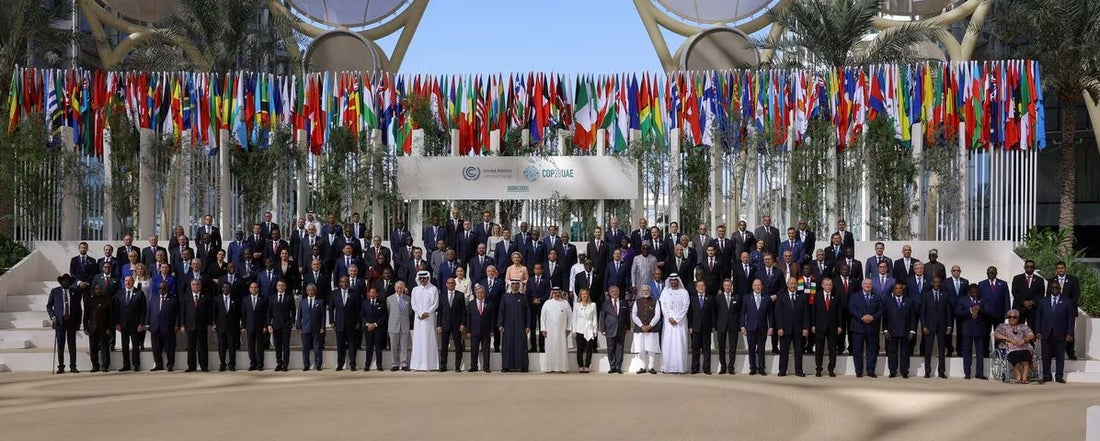At the Cop28 climate summit, leaders from almost 200 countries agreed to a plan that asks everyone to shift away from using fossil fuels. This plan aims to help stop the worst effects of climate change.
2023 is the hottest year on record.
As in, since humans have been tracking the temperature, we have never had a year as hot as 2023. Maybe that’s the wake up call our leaders needed.
It took two weeks of discussions in the United Arab Emirates to finalize the agreement. The president of Cop28, Sultan Al Jaber, quickly approved it, getting cheers from the crowd.
But, not everyone was completely happy with the deal.
Even though more than 130 countries and groups wanted a clear promise with clear language to get rid of or use less fossil fuels, the agreement didn’t directly say that.
Instead, it asked countries to help make the switch from fossil fuels to cleaner energy sources by 2050.
Al Jaber said that the agreement was a big answer to a worldwide problem. A recent checkup showed that countries were not doing enough to meet the goals of the important Paris climate agreement.
One of the main goals they were missing was to stop global warming from going over 1.5 degrees Celsius above the temperature before factories and machines existed.
1.5C warming is what scientists believe the planet can take before our weather, wildfires, tornadoes and heat waves become so catastrophic that… well, let’s leave it there.
“We have delivered a robust action plan to keep 1.5C in reach,” said Al Jaber. “It is an enhanced, balanced, but make no mistake, a historic package to accelerate climate action. It is the UAE consensus. We have language on fossil fuel in our final agreement for the first time ever.”
Some people praised the deal for pushing to move away from coal, oil, and gas. But others, especially those from small islands and groups fighting for climate fairness, said it didn’t do enough to cut emissions and help the most vulnerable places facing extreme weather.
There was confusion after the agreement because some groups didn't have a chance to discuss it. Even though some countries wanted a stronger push to stop using fossil fuels, others, like Saudi Arabia, didn’t want any mention of reducing fossil fuel use in the agreement.
The Alliance of Small Island States, representing 39 nations, wasn't present when the deal got approved as they were organizing their reaction.
Anne Rasmussen, their main negotiator from Samoa, didn't oppose the agreement formally. While she acknowledged positive aspects in the deal, she criticized the process, and highlighted flaws in the text, saying it included a “litany of loopholes”. She emphasized, "We've taken a small step forward when we urgently needed a giant leap in our actions and support." Her words received a standing ovation.
The truth is the road ahead requires each country’s commitment to the agreement's most ambitious interpretation. This is no small feat.
It also requires each of us to make choices in our own lives to reduce our carbon footprint. For me, waiting for government and the fossil fuel industry doesn't sit well. I need to take action like riding a bike instead of driving, carpooling to soccer instead of driving alone, and choosing products with lower carbon footprints.
UN Secretary-General António Guterres emphasized the inevitability of a fossil fuel phase-out, urging timely action to avert impending environmental crises.
Now that Cop28 is over, countries need to follow through on their promises in their own laws and investments.
While the Cop28 agreement isn't perfect, it's a major step toward a world with less reliance on fossil fuels. It shows that countries are starting to agree on the need to switch to cleaner energy for a healthier planet.
It may not be perfect.
It’s still a major #WinForThePlanet 🙌🏼
Jamil al Jabri | Founder, Weightless Clean

